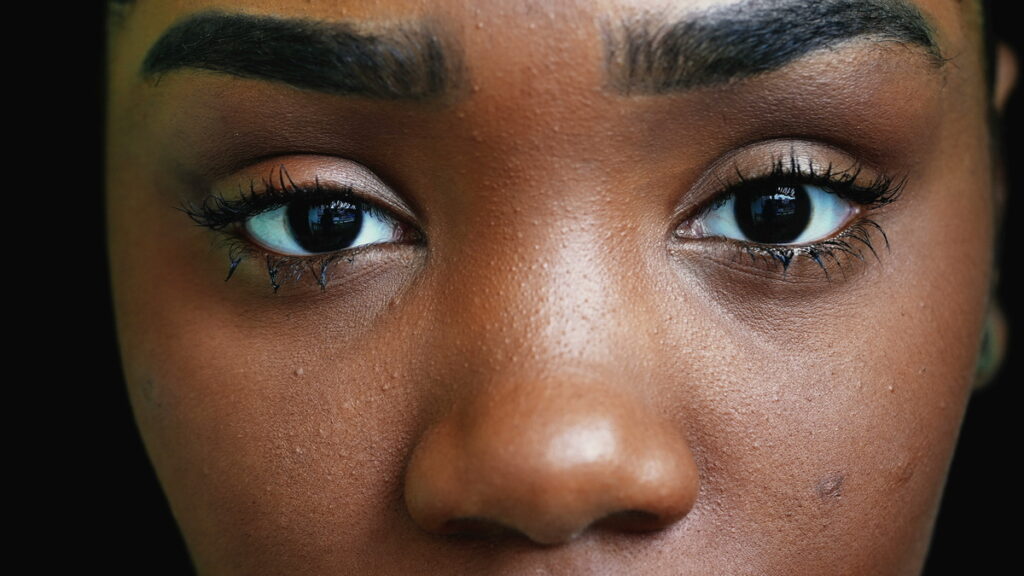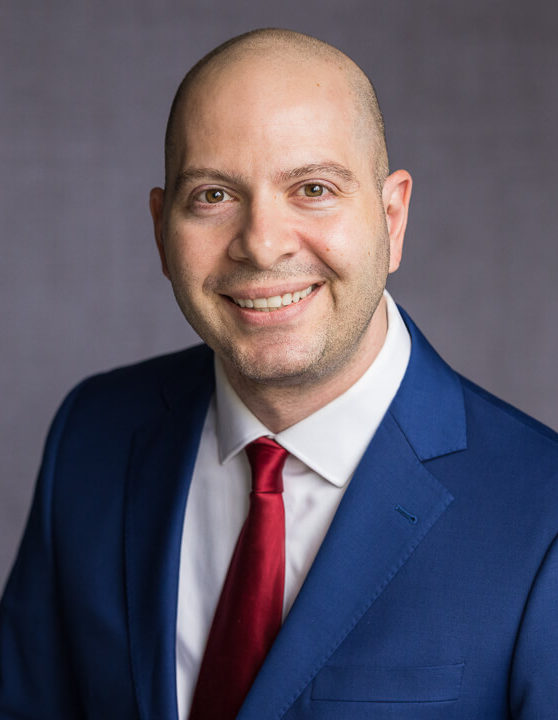At Brusco Vision, our goal is to help you achieve the vision you’ve been dreaming of and support you every step of the way on your journey. In this article, we will answer a question we are often asked: is LASIK performed on both eyes at the same time? We will also answer many of the most frequently asked questions about having LASIK on both eyes. If you’re tired of wearing glasses or contact lenses, call our office today to schedule your consultation and see if LASIK eye surgery is right for you.
Is LASIK performed on both eyes at the same time?
LASIK is performed on both eyes at the same time in most cases. Usually, LASIK eye surgery is done on both eyes in one surgical session, with one eye right after the other.
LASIK is a form of refractive surgery, a specialty within ophthalmology, that improves vision by adjusting the eye’s ability to focus by changing the shape of the cornea. Laser-assisted in situ keratomileusis, or LASIK, is tailored to address myopia (nearsightedness), among other visual impairments, by removing a microscopic amount of tissue to reshape the cornea. A specialized laser precisely reshapes the cornea, correcting refractive errors to reduce or eliminate the need for eyeglasses or contact lenses. LASIK is quick and convenient and only takes around 10 minutes for each eye. If both your eyes need LASIK surgery, we suggest doing both on the same day. Because LASIK is a quick procedure with a fast recovery, it’s more convenient for patients to have both eyes done at the same time rather than separately.
At Brusco Vision, doing what is best for each patient is our number one priority. Our eye doctor, Dr. Brusco, is an ophthalmologist specialized in refractive eye surgery, and uses state-of-the-art laser technology for precise corneal adjustments. If you have any questions or concerns about having LASIK performed on both eyes at the same time, discuss this with Dr. Brusco and the team. They will take time to talk with you more in-depth about your individual procedure and make sure you are completely confident about your LASIK eye surgery.
What are the advantages of having LASIK on both eyes at the same time?
Having LASIK performed on both eyes at the same time is helpful for a three reasons.
First, it’s more convenient because you only need to go through the LASIK process once. This laser vision correction procedure minimizes the time spent away from work and daily activities, thanks to its efficient recovery timeline. You won’t have to arrange for someone to drive you home from the surgery twice or deal with two separate recovery periods. This means less hassle for you and the person helping you.
Second, the recovery from LASIK is pretty quick, usually just a few days. During this time, the cornea heals, allowing for the correction of the refractive error to fully stabilize. If you have LASIK performed on both eyes at the same time, you only have to go through this short healing time once. This approach ensures that any changes in refraction, the bending of light by the eye, are addressed simultaneously, providing a cohesive improvement in vision. This lets you get back to your normal life, including work, faster. Most people can see clearly again within a day or two after the surgery, so you won’t need to take a lot of time off work. For those reliant on a corrective lens for day-to-day activities, this can mark a significant turning point towards freedom from glasses or contact lenses. But, how much time you need off can depend on the kind of job you have, so it’s a good idea to talk it over with your doctor.
Third, when you have LASIK done on both eyes at the same time, your vision stabilizes faster. This is crucial for patients experiencing visual impairment, as it allows for a quicker return to optimal vision. Usually, it takes about three to six months for your eyes to fully adjust after LASIK. Doing both eyes at once means you go through this adjustment period one time, not twice.
So, choosing to have LASIK on both eyes at the same time means you recover quicker, have less downtime from work, and deal with less stress from surgery. Plus, it’s just easier to have one surgery day and one follow-up visit, especially if you’re busy. Going through the surgery and recovery process once, instead of two times, also makes the whole experience less stressful.
Do you ever recommend treating one eye at a time?
There are situations where it might be better to have LASIK surgery on one eye at a time instead of both together. If you have one eye that sees well for distance but the second eye requires an eyeglass prescription, then your eye doctor will perform LASIK on only one eye. Even though LASIK is very safe, like any procedure, it has some minimal risks. By treating one eye at a time, the ophthalmologist can closely monitor the healing process and refraction changes, ensuring the most accurate results. Doing one eye at at time allows the doctor to see how well the surgery went in the first eye before moving on to the second eye. This careful approach is particularly beneficial for patients with a significant difference in the refractive error between their eyes and helps in planning the best treatment for the second eye.
There are also instances where only one eye might need LASIK, such as when one eye has normal vision while the other is nearsighted, farsighted, or has astigmatism. In these cases, LASIK can provide a corrective lens-free solution for the affected eye, balancing the patient’s overall vision and only the eye with impaired vision would be treated. This highlights the importance of a comprehensive eye examination before any LASIK procedure to determine the best course of action for each patient.
Specifically, for individuals over 40 experiencing presbyopia, LASIK on just one eye for distance vision might be recommended, potentially offering an improved range of vision without the need for glasses for close work. This option, often explored during the initial consultation, includes a trial to see if the patient finds the solution comfortable and effective.
While the preference for simultaneous or separate treatments varies, most patients opt for having both eyes done on the same day for convenience and efficiency. However, during the initial consultation, we make sure to talk about all your options and any concerns you might have to make sure you’re comfortable and confident with the plan for your treatment. Whether you want to treat both eyes together or one at a time on different days, we’ll respect your decision underscoring our personalized approach to each patient’s care.
LASIK Self Test
What about Monovision? Is that only performed on one eye?
When it comes to treating presbyopia (the usual age-related difficulty in seeing things up close), monovision can be achieved through LASIK by adjusting each eye’s vision differently—one for close-up and the other for distance. Sometimes, this could mean having surgery on each eye at different times, depending on the surgeon’s advice and the patient’s specific needs. However, it’s common for surgeons to correct both eyes in the same session, focusing on distance vision for the dominant eye and near vision for the non-dominant eye.
Monovision LASIK is a unique approach where the goal is to give a patient good near vision in one eye and good distance vision in the other. First, we figure out which eye is dominant. Then, we sometimes have the patient try out contact lenses that correct for distance vision in the dominant eye and near vision in the non-dominant eye. If this test goes well and the patient is happy with the vision they get from the contacts, we can then do LASIK to achieve the same effect.
For someone who already sees well at a distance with both eyes, we might just use a contact lens for near vision in the non-dominant eye during the trial. If they like how that works, we’d then proceed with LASIK on the non-dominant eye to correct for nearsightedness.
More FAQ’s About Is LASIK Performed On Both Eyes At The Same Time?
Is it safer to have LASIK done on one eye at a time?
While LASIK is a highly safe procedure with advanced technology, some patients prefer treating one eye at a time to assess the outcome before proceeding with the second. At Brusco Vision, we prioritize your comfort and safety, discussing all options during your consultation.
How long does LASIK take for both eyes?
The LASIK procedure is remarkably quick, taking only about 10-15 minutes for both eyes at Brusco Vision. Each eye individually takes approximately 5 minutes, allowing patients to experience minimal discomfort and a swift procedure.
What is the recovery time for LASIK on both eyes?
Recovery times can vary, but most Brusco Vision patients notice significant improvements in vision within 24 to 48 hours. Full recovery and stabilization can take a bit longer, but the convenience of improving both eyes simultaneously often outweighs the gradual adjustment period.
Are the results of LASIK different if you do both eyes at the same time?
Performing LASIK on both eyes in the same session doesn’t compromise the results. At Brusco Vision, we ensure that each eye receives customized treatment based on your unique vision needs, whether treated simultaneously or separately.
Can LASIK correct both eyes if they have different prescriptions?
Absolutely. At Brusco Vision, LASIK is tailored to the individual prescriptions of each eye. Whether your eyes have differing levels of near-sightedness, far-sightedness, or astigmatism, we customize the procedure for optimal visual acuity in both eyes.
What if I only need LASIK in one eye?
If only one eye requires correction, LASIK can certainly be performed on just that eye. During your consultation at Brusco Vision, we’ll conduct a thorough examination to determine the best approach for your vision correction, focusing on achieving balanced and effective results.
How does monovision LASIK work? Is it done on both eyes?
Monovision LASIK involves correcting one eye for distance and the other for near vision, often used to address presbyopia. At Brusco Vision, this can be done in a single session or separately, based on a successful trial with contact lenses and your personal comfort with the adaptation.
Will I need someone to drive me home if I get both eyes done?
Yes, you will need someone to drive you home after undergoing LASIK at Brusco Vision, regardless of whether you have one or both eyes treated. It’s important to ensure your safety as your visual perception may be blurry immediately following the procedure.
What happens if there’s a complication with one eye? Can I still have LASIK on the other?
At Brusco Vision, patient safety is our top priority. If there’s a complication with one eye, we’ll thoroughly assess the situation before proceeding with any further treatment. Our goal is to ensure the highest standards of care and to address any concerns before continuing with LASIK on the other eye.



